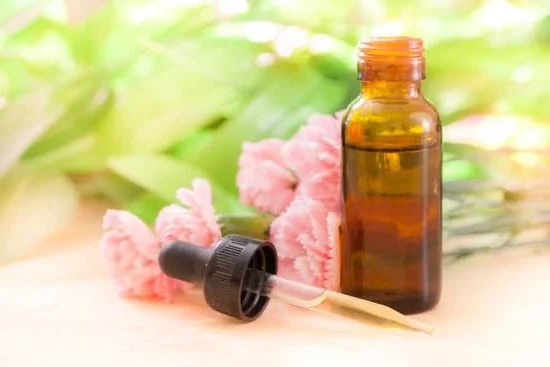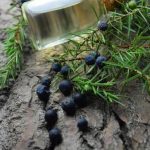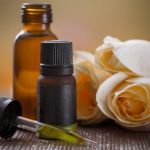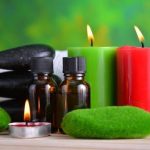In the world of holistic healing and spiritual practices, the use of aromatherapy and witchcraft has long been intertwined, offering a unique and fascinating connection. The combination of these two ancient traditions has sparked curiosity and interest among practitioners and spiritual seekers alike. Aromatherapy, the use of essential oils and scents for physical and emotional well-being, meets the mystical world of witchcraft, where rituals, spells, and divination are practiced to manifest desired outcomes.
The history of aromatherapy dates back to ancient civilizations where plant-based remedies were used for medicinal purposes. Over time, this practice has evolved into a popular alternative therapy with a wide range of modern-day applications. Similarly, witchcraft has a rich history rooted in folklore and spirituality, often incorporating natural elements such as herbs and crystals in its rituals.
In this article, we will delve into the intriguing connection between aromatherapy and witchcraft, exploring the historical context of both practices as well as their contemporary manifestations. From the role of aromatherapy in witchcraft rituals to the ethical considerations surrounding their combined use, we aim to provide a comprehensive understanding of this fascinating intersection in the spiritual community.
Whether you are a practitioner looking to expand your knowledge or simply curious about these interconnected realms, join us on this journey through the mystical world of aromatherapy and witchcraft.
The History of Aromatherapy
Aromatherapy has a rich and fascinating history that dates back to ancient civilizations, where the use of scented oils and natural plant extracts was believed to have powerful healing properties. The practice of using aromatic botanicals for medicinal and spiritual purposes has been a part of human culture for thousands of years, with evidence of its use found in ancient Egyptian, Chinese, Greek, Roman, and Indian traditions.
Ancient Healing Practices
In ancient Egypt, aromatic oils were used in religious ceremonies, medicine, and even mummification rituals. The Ebers Papyrus, which dates back to 1550 BC, contains references to over 800 herbal remedies and their uses. In China, the use of aromatics is documented as far back as 2697-2597 BCE in the reign of Huang Ti. In India, Ayurvedic medicine also incorporates the use of aromatic oils as a therapeutic tool.
Modern Day Uses
The modern practice of aromatherapy can be traced back to the early 20th century when French chemist René-Maurice Gattefossé coined the term after discovering the healing properties of lavender oil when he applied it to a burn on his arm. Today, aromatherapy is widely used in alternative medicine and holistic healing practices as a complementary therapy for a wide range of physical and emotional ailments.
Aromatherapy’s journey from ancient healing practices to modern day uses showcases its enduring appeal and relevance across cultures and time periods. It continues to be an integral part of various traditional medicinal systems while also being embraced by contemporary wellness enthusiasts seeking natural remedies for their well-being. The integration of aromatherapy into witchcraft further emphasizes its versatility and enduring presence in spiritual and healing practices.
The Role of Aromatherapy in Witchcraft
Aromatherapy, the use of essential oils and scents for healing and wellness, has long been intertwined with the practice of witchcraft. In fact, throughout history, witches and practitioners of magic have utilized aromatic plants and their essences in their rituals and spells. The use of aromatherapy in witchcraft is rooted in the belief that certain scents have the power to influence energy, mood, and consciousness, making them valuable tools for magical workings.
Essential oils play a significant role in witchcraft, as each oil is associated with specific magical properties and intentions. For example, lavender is often used for relaxation and peace, while cinnamon is favored for love spells. When performing rituals or casting spells, practitioners carefully select essential oils based on their metaphysical properties to enhance their magical workings. These aromatic tools are believed to heighten focus, raise vibrations, and amplify the intention behind a witch’s spell or ritual.
In addition to using essential oils in rituals and spells, witches also incorporate fragrant herbs into their practices. Burning dried herbs like sage, rosemary, or mugwort releases their natural aromas, which are believed to cleanse negative energy and create a sacred space for magic.
Additionally, these herbs can be used in sachets or charm bags to carry the protective or healing properties with them wherever they go. The use of aromatherapy in witchcraft is a time-honored tradition that continues to be an integral aspect of modern magical practices.
| Aromatherapy & Witchcraft | Role in Rituals & Spells |
|---|---|
| Essential Oils | Associated with specific magical properties |
| Fragrant Herbs | Burning herbs to cleanse negative energy |
Essential Oils and Their Magical Properties
In the practice of witchcraft, essential oils play a significant role in rituals and spells. Each essential oil is believed to possess its own unique magical properties, making it essential for practitioners to understand the characteristics of different oils. For example, lavender oil is often used for relaxation and calming spells, while rosemary oil is associated with purification and protection. These properties are believed to enhance the effectiveness of rituals when used in conjunction with other elements of witchcraft.
One popular approach to using essential oils in witchcraft is through anointing candles. By anointing a candle with a specific oil that aligns with the desired outcome of a spell, practitioners believe they can amplify the energy and intention behind their magic.
In addition to candles, essential oils are also used in creating potions, bath blends, and ritual tools such as anointing oils or perfumes. The versatility of essential oils allows witches to incorporate them into various aspects of their craft.
Furthermore, understanding the magical properties of essential oils involves considering their associations with different elements, planets, and deities in witchcraft traditions. For instance, cinnamon oil may be associated with fire and the sun, making it suitable for spells related to energy and success. Similarly, jasmine oil might be connected with the moon and love magic. This deep understanding of the correspondences between oils and metaphysical qualities adds another layer of complexity to the practice of aromatherapy within witchcraft.
| Essential Oil | Magical Property |
|---|---|
| Lavender | Relaxation and Calming Spells |
| Rosemary | Purification and Protection |
| Cinnamon | Energy and Success Spells |
Aromatherapy and Crystals
The use of aromatherapy and crystals in witchcraft is a practice that dates back centuries, with both elements playing a significant role in rituals and spells. The combination of these natural tools is believed to enhance the energy and intentions of practitioners, creating a harmonious and powerful environment for magic to manifest. Here are some ways in which aromatherapy and crystals are harnessed in witchcraft:
1. Complementary Energies: In the practice of witchcraft, specific essential oils are often paired with corresponding crystals to amplify their metaphysical properties. For example, lavender oil, known for its calming effects, may be used alongside amethyst crystals to promote serenity and relaxation during meditation or spell work.
2. Anointing Rituals: A common practice in witchcraft involves anointing candles, altars, or oneself with essential oils diluted in carrier oils such as jojoba or almond oil. Certain crystal chips or powders may also be added to the oil blend for an extra layer of energy. As practitioners anoint themselves or objects with these infused oils, they set intentions and call upon the magical properties of both the oils and crystals to aid them in their workings.
3. Creating Sacred Spaces: The use of aromatherapy diffusers or sprays combined with crystal grids can help create a sacred space for rituals and spell casting. By choosing essential oils that correspond to the desired outcome and placing matching crystals around the area, practitioners can build an energetic foundation that supports their magical work.
The integration of aromatherapy and crystals within witchcraft provides a rich tapestry of sensory experiences that enhance spiritual practices. As modern witches continue to explore new ways of utilizing these tools, the relationship between aromatherapy and witchcraft continues to evolve within the spiritual community.
DIY Aromatherapy Spells
Aromatherapy has long been used in witchcraft as a means of harnessing the power of scent and essential oils to enhance spells, rituals, and intentions. For practitioners, creating their own magical blends for love, prosperity, and protection is not only a spiritual practice but also a form of self-care. By crafting custom blends, witches are able to infuse their energy and intentions into the oils they use, making their spells more potent and personalized.
Choosing the Right Essential Oils
When creating DIY aromatherapy spells, it’s important to choose essential oils that align with your specific intentions. For love spells, some popular choices include rose oil for romance and attraction, jasmine for passion and sensuality, and ylang-ylang for enhancing feelings of love and connection.
Meanwhile, for prosperity spells, oils such as cinnamon for attracting wealth, bergamot for success and abundance, and ginger for financial growth may be used. And when it comes to protection spells, essential oils such as frankincense for banishing negative energies, rosemary for warding off harm, and black pepper for creating boundaries can be used.
Blending Techniques
Once the appropriate essential oils have been selected based on their magical properties, the next step is to blend them together to create a harmonious aroma that aligns with one’s desired outcome. Whether using carrier oils such as jojoba or almond oil or simply mixing the essential oils together directly in a diffuser or anointing blend, understanding proper blending techniques is crucial in order to create well-balanced aromatherapy spells that effectively convey one’s intentions.
Rituals and Affirmations
Finally, once the magical blends have been created, witches can incorporate rituals and affirmations into their practice to further empower their DIY aromatherapy spells. Infusing the blending process with intention-setting exercises such as meditation or visualization can help charge the oil with the practitioner’s energy.
Additionally,
Aromatherapy Rituals for Self-Care and Healing in Witchcraft
Aromatherapy and Witchcraft have a long-standing relationship when it comes to self-care and healing rituals. The use of scents and essential oils in witchcraft dates back to ancient times, with different cultures incorporating aromatherapy into their spiritual practices. In modern witchcraft, aromatherapy continues to play a significant role in promoting well-being and inner balance through various rituals and spells.
In the practice of Witchcraft, aromatherapy is utilized as a tool for self-care and healing. Certain scents are believed to have specific properties that can aid in relaxation, mental clarity, and emotional balance. Whether it’s using lavender essential oil for calming purposes or citrus oils for energy cleansing, the power of aromatherapy in promoting overall wellness cannot be underestimated.
Aromatherapy rituals for self-care within the realm of witchcraft often involve creating personal blends that align with an individual’s intentions. These blends can then be used in meditation, bathing, anointing candles, or simply worn as a natural perfume.
Combining the therapeutic properties of essential oils with intentional magic, practitioners of witchcraft can create powerful rituals aimed at nurturing their mind, body, and spirit. An important aspect of utilizing aromatherapy in self-care practices within witchcraft is being mindful of sourcing and using these oils ethically while respecting cultural traditions and indigenous knowledge.
- Personal blend creation: Combining different essential oils to create a unique scent that resonates with your energy
- Bath ritual: Adding a few drops of essential oil to your bathwater as part of a cleansing ritual
- Anointing candles: Using specific scented oils to anoint candles for intention setting during meditation or spell work
- Diffuser magic: Using an essential oil diffuser to infuse your sacred space with aromas that promote healing or relaxation
The Ethical Considerations of Aromatherapy and Witchcraft
When delving into the world of aromatherapy and witchcraft, it is crucial to consider the ethical implications surrounding the use of these practices. Both aromatherapy and witchcraft have historical and cultural significance, often drawing from indigenous knowledge and traditions. As such, it is essential to approach these practices with respect and mindfulness, especially when using traditional ingredients and techniques.
One of the key ethical considerations in utilizing aromatherapy and witchcraft is the appropriation of cultural traditions. Many of the essential oils, herbs, and practices used in both aromatherapy and witchcraft have roots in Indigenous cultures around the world. It is important to acknowledge the origins of these ingredients and rituals, as well as to seek permission or guidance from relevant cultural authorities when incorporating them into one’s practice.
Furthermore, there is also a responsibility to use sustainable sourcing methods for essential oils and herbs used in aromatherapy and witchcraft. Over-harvesting or exploiting natural resources not only harms the environment but also disrespects the cultural significance of these plants. Practitioners should prioritize ethical suppliers who prioritize fair trade, environmental conservation, and support for indigenous communities when obtaining these ingredients.
In addition to honoring cultural traditions, practitioners should also be mindful of practicing consent and respecting personal boundaries within their use of aromatherapy and witchcraft. This includes obtaining informed consent from individuals before using scents or performing rituals that may impact their well-being.
Additionally, practitioners should ensure they are not infringing on others’ beliefs or spiritual paths when engaging in aromatherapy spells or rituals in shared spaces. Overall, being conscientious about ethical considerations ensures that aromatherapy and witchcraft are practiced with integrity and respect for all involved.
The Future of Aromatherapy and Witchcraft
In exploring the future of aromatherapy and witchcraft, it is evident that these practices will continue to evolve and intertwine as new trends and practices emerge within the spiritual community. As modern society becomes more accepting and open to alternative forms of healing and spirituality, the use of aromatherapy in witchcraft is likely to become even more widespread.
One emerging trend in the intersection of aromatherapy and witchcraft is the emphasis on sustainability and ethical sourcing of essential oils. As practitioners become more conscious of the environmental impact of their craft, there is a growing movement towards using ethically harvested and sustainable essential oils in rituals and spells. This not only aligns with the principles of many spiritual traditions but also reflects a broader societal shift towards eco-consciousness.
Additionally, with the increasing interest in holistic wellness and self-care, aromatherapy rituals for healing are gaining prominence within the witchcraft community. From incorporating scents for emotional well-being to using aromatherapy for physical ailments, there is a growing recognition of the powerful therapeutic benefits that essential oils can provide. As these practices become more integrated into mainstream wellness routines, it’s clear that aromatherapy’s role in witchcraft will continue to expand.
Looking ahead, it’s important for practitioners of both aromatherapy and witchcraft to engage in ongoing dialogue about respecting cultural traditions and indigenous knowledge. As these practices gain popularity beyond their traditional roots, it’s essential to honor and preserve the historical significance and cultural heritage associated with aromatherapy and witchcraft. By doing so, we can ensure that these ancient practices continue to thrive while adapting to meet the needs of contemporary spiritual seekers.
Frequently Asked Questions
What Is the Spiritual Meaning of Aromatherapy?
Aromatherapy holds a spiritual meaning as it is believed to promote emotional, mental, and spiritual well-being through the use of aromatic essential oils. It is thought to balance and harmonize the body and mind.
What Do Essential Oils Do Spiritually?
Essential oils are believed to have various spiritual effects such as promoting relaxation, reducing stress, uplifting mood, and even enhancing meditation or prayer practices. Many people use them to create a sacred or spiritual space.
What Are the Beliefs of Aromatherapy?
The beliefs of aromatherapy center around the idea that essential oils can support emotional and spiritual health by interacting with the limbic system in the brain, which is involved in emotions, memory, and arousal. Aromatherapists also believe that these oils have energetic properties that can influence a person’s spiritual state.

Are you looking for a natural way to improve your health and wellbeing?
If so, aromatherapy may be the answer for you.




